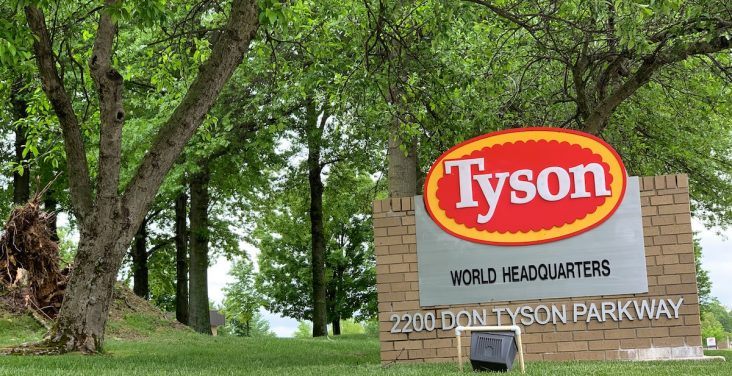Tyson Foods expands global footprint with 40% stake in Brazilian company
by August 30, 2019 11:12 am 1,531 views

Tyson Foods continues to double down efforts to expand global sales announcing a 40% stake in Grupo Vibra Foods, a Brazilian poultry company. Terms of the deal were not disclosed, which is still subject to the approval of regulators in Brazil.
“This investment will enable us to access poultry supplies in Brazil to meet the growing needs of Brazilian customers and of priority demand markets in Asia, Europe and the Middle East,” said Donnie King, group president, international & chief administration officer for Tyson Foods. “It’s part of our strategy to develop a more flexible supply chain and mitigate the volatility of our previous model, which relied primarily on U.S. exports.”
Tyson has been busy building out its global footprint in recent years with the acquisition of Keystone Foods, which gave the meat giant more operations in China and added a presence in South Korea, Malaysia, Thailand and Australia, and BRF poultry businesses in Thailand and Europe.
Tyson said Grupo Vibra serves customers in Brazil as well as more than 50 countries around the world giving Tyson Foods access to those markets.
King said this is a strategic acquisition as roughly 98% of the protein consumption growth in the next five years will occur outside the U.S.
“As the world population continues to grow, Tyson will grow with it,” King said.
Tyson generates about $7 billion in international sales annually which includes $5 billion in U.S. export sales and $2 billion in-country revenues.
This is not Tyson’s first investment in Brazil. In 2008, Tyson acquired three poultry plants – Macedo Agroindustrial and Avicola Itaiopolis, both in the state of Santa Catarina, and a 70% stake in Frangobras in the state of Parana.
At the time, Tyson said the companies were located near important ports and within key Brazilian production areas for soy and corn, key components of animal feed. Tyson invested heavily in those businesses which struggled for several years. In 2014, Tyson sold its Brazilian and Mexican business to competitor Pilgrim’s Pride as the company chose to invest $8.55 billion to acquire Hillshire Brands and focus more intently on growing its value-added, higher-margin protein business.
Tyson said the alliance with Grupo Vibra makes sense because of the companies similar strategies to grow higher-margin product sales. Grupo Vibra management agreed.
“This agreement is the result of the mutual trust between our two companies and the goal of both companies to expand globally,” said Flavio Sergio Wallauer, chairman of the board for Grupo Vibra. “We also both believe in the importance of constantly adding value to our products. For us, this includes continuing to grow, innovate and strengthen the position of our brands, Nat and Avia.”
As part of the agreement, Grupo Vibra will spin-off its genetics multiplication business, Agrogen, into a separate company, a joint release stated.
Gerson Luis Müller, CEO of Grupo Vibra, said Tyson’s know-how and new business opportunities should help to speed up the overall growth of Grupo.
“This partnership will be important to further develop our businesses in Brazil and foreign markets, granting access to new technologies and investments mainly in R&D. We will capitalize on a global distribution network to reach new markets. We trust that this agreement will strongly contribute to improve the quality of our services, adding new products to our portfolio offered to clients and consumers,” he added.
Stephens Inc. Analyst Ben Bienvenue is bullish on Tyson Foods saying the company has a strong position with its expanded global footprint. He said Tyson is now taking a demand-driven approach to the business, allowing the company’s key customers to drive growth as opposed to the company’s previous strategy of building operations to win new business.
“This prior ‘push’ strategy caused underutilization of the company’s asset base and a bloated expense structure relative to the business that the company was serving. Earlier this year, Tyson brought Donnie King back to the company to run the international business. Tyson has since right-sized business and the company’s legacy international business is now profitable, ahead of expectations for break-even by the end of fiscal 2019,” Bienvenue said recently.
Shares of Tyson Foods rallied on the news rising to $93.25, up $1.53 in the early morning session. Shares set a new 52-week high price of $94.07 in intraday trading on Friday (Aug. 30) ahead of the Labor Day weekend. Tyson shares are up 78% this year pushing near the street’s target price of $95.
